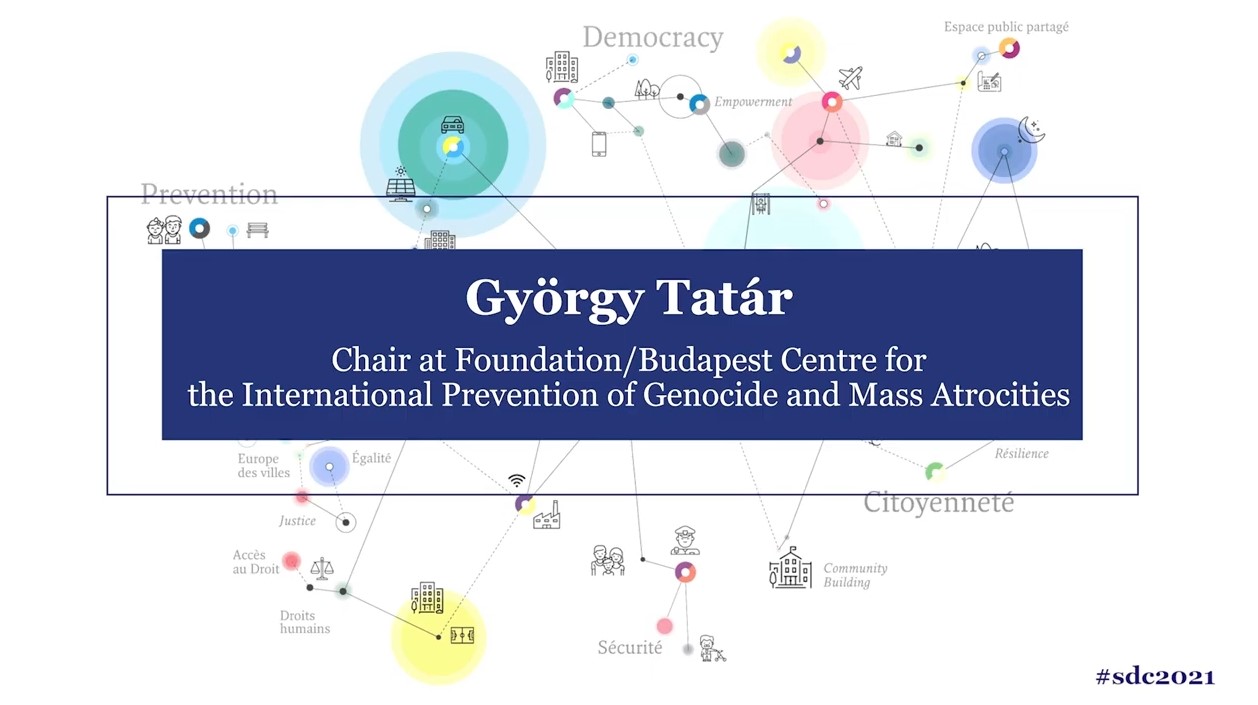- |
- Category: Publications
- |
- Category: Publications
We are pleased to share the thoughts of Dr Gyorgy Tatar, Chair of the Budapest Centre, on the operalization of the Responsibility to Protect.
You may read the article if you click on this link.
You may read the article if you click on this link.
- |
- Category: News
- |
- Category: News
On the occasion of the 73rd anniversary of the adoption of the UN convention on genocide prevention, the Budapest Centre for Mass Atrocities Prevention would like to share the article written by Dr. Gyorgy Tatar, Chair of the Budapest Centre, to commemorate the historical event and to stress the importance and urgency to intensify fight against hate.
You can read the article here
You can read the article here
- |
- Category: News
- |
- Category: News
We are pleased to share the thoughts of Gyorgy Tatar, Chair of the Budapest Centre, on the follow up of the GAAMAC IV conference.
You can read the article here
You can read the article here
- |
- Category: Allience for Dialogue
- |
- Category: Allience for Dialogue
The Budapest Centre for Mass Atrocities Prevention would like to share the unofficial translation of the article By Dialogue Against Hate, written and posted by Gyorgy Tatar, Chair of the Budapest Centre, in his private Facebook page on 23 November, 2021.
You can read the article here.
You can read the article here.
- |
- Category: News
- |
- Category: News
 The Budapest Centre for Mass Atrocities Prevention is proud to share the interview to Dr. Gyorgy Tatar, the Director of the Centre and Chair of the Board of Trustees, at the 2021 EFUS conference on Security, Democracy and Cities.
The Budapest Centre for Mass Atrocities Prevention is proud to share the interview to Dr. Gyorgy Tatar, the Director of the Centre and Chair of the Board of Trustees, at the 2021 EFUS conference on Security, Democracy and Cities.We invite you to take a look at the interview here.
- |
- Category: News
- |
- Category: News
The Budapest Centre calls your attention to the newly published EPLO statement on The European Peace Facility: Minimising Significant Risks in Implementation.
You can find the document here.
You can find the document here.
- |
- Category: News
- |
- Category: News
We continue to enrich the content of our E-Youth Library and to present new videos, documents and podcasts on a wide range of topics every week.
You are kindly invited to visit the Library regularly.
You are kindly invited to visit the Library regularly.
- |
- Category: Publications
- |
- Category: Publications
The Budapest Centre is proud to present the new piece of its Artificial Intelligence series On the Use of Artificial Intelligence in the framework of the Syrian War.
This paper innovatively provides a compilation of AI weapons and tools applied by a multitude of actors during the conflict and concludes by stating how their employment jeopardizes human rights, thereby stressing the necessity of a universal regulation on the development and misuse of AI - from the perspective of mass atrocities.
We wish to point out that Artificial Intelligence plays an increasing role in conflict scenarios: At the same time that it has become a tool for human rights violations, it also holds the potential to play a positive role in genocide prevention, victims’ support, and reconstruction.
You can find the paper here
This paper innovatively provides a compilation of AI weapons and tools applied by a multitude of actors during the conflict and concludes by stating how their employment jeopardizes human rights, thereby stressing the necessity of a universal regulation on the development and misuse of AI - from the perspective of mass atrocities.
We wish to point out that Artificial Intelligence plays an increasing role in conflict scenarios: At the same time that it has become a tool for human rights violations, it also holds the potential to play a positive role in genocide prevention, victims’ support, and reconstruction.
You can find the paper here





